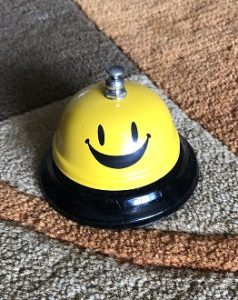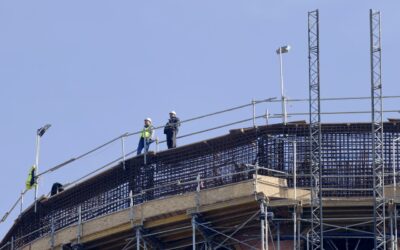Executive Summary
An effective meeting is one wherein the attendees are “with” the facilitator the entire time and can and do follow along. Here are some suggested tactics.
“Musts” for an effective meeting.
Have an agenda. Make it simple. If you need to hold someone accountable for the events or discussions during the meeting, make sure to publish minutes of the meeting.

Attendee Assumptions
Assume these two items and adjust as necessary (more on why later) – your attendees:
- …are not expert in this subject matter – the subject matter may be something that is just not known to the attendees. It’s maybe too technical or maybe it’s just that you are discussing activities in which the attendee has not been present.
- …are not paying attention every second during the meeting – your agenda may be one page with 40 lines on it. It is likely that attendees break from you for several seconds or minutes to check their phone, or just drift off mentally. Speak your agenda out loud providing references to where you are so that anyone who dozed off can quickly get back up to speed.
Treat your attendees as blind and dumb.
This is an awful thing to say and a crassly overstated, but if you can agree with the assumptions above, here are the two top items for a meeting facilitator:
- State the obvious and educate the embarrassed – just because you know what a waler is in a sheetpile cofferdam doesn’t mean everyone in the meeting does. So, explain it so that that one person of eight in the room who doesn’t know what one is, now does: “…the contractor today installed the first of two walers, and as you know walers are those internal rings of structural steel you see inside the cofferdams preventing the sheetpiles from caving in on the crew inside.” This is better than “last week the crew drove sheets utilizing their pre-built template at grade and is now proceeding to the first of two walers”. Huh?
- Keep attendees on the meeting map – an agenda which is numbered serves as a roadmap for attendees. So, every time you go from one item to another, refer the attendee to the discrete location in the agenda. For example, you can say “…now leaving item 1.3 and starting into item 2.1, let’s talk about the recent near miss trench cave-in…”
If you pretend that your attendees are blind and cannot see the agenda (this is why you announce your location throughout the meeting, referencing agenda item numbers and reading pertinent parts of the agenda) and that they’re dumb (break things down in the meeting and explain the “simple” or the “obvious”), you can have very effective meetings.

Bonus #1 – bell timer.
Get a short order kitchen bell like the one pictured here and ring it at the two-minute mark (or whatever duration you determine is the maximum for a speaker to control the floor). This will keep the verbose in check.
Bonus #2 – pause for marination.
When you say something with any sort of weight or complexity let it hover out there for a few seconds. Let people process what you said and develop their thought and resultant question related to it.
Bonus #3 – bring a handout.
One of my mentors in my mid-thirties said, “every good meeting needs a handout”. I never forgot that. So, when applicable, instead of referring to an event or a drawing or a spec, bring it to the meeting!
My Story
I do not run as many meetings as I used to, but I try to keep the attendees participating, and try to hand the figurative microphone around as much as I can. I use these tactics (well, every one of them but for the bell – that’s a photo of my bell which was a gift but not one I’ve ever used to control participants!).
I also probably overexplain. There are people in my meetings at a high level who aren’t engaged regularly on what I’m presenting about. Also, there are younger people coming up in the business. Everyone should be able to become educated enough in my meetings to understand the content, participate at some level, or at least at a minimum go home a little smarter than when they walked in.






0 Comments